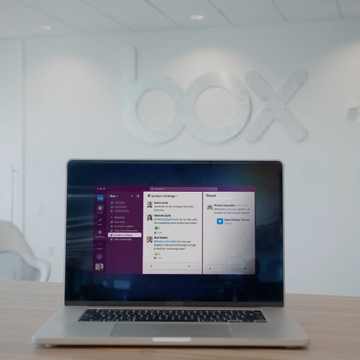As the national statistical office, Statistics Netherlands, or Centraal Bureau voor de Statistiek (CBS), provides reliable statistical information and data to produce insight into social issues, thus supporting public debate, policy development and decision-making while contributing to prosperity, well-being and democracy.
As an IT organisation, it’s known for its innovative methodology around capturing and analysing data, and it’s a global leader in the field of statistics. Collaboration and flexible working are key to the organisation. Staff need to be able to work productively from anywhere, at any time, with minimal downtime, optimised responsive support services and a transparent means of communication, without the limitations of email.
While the team had access to a collaboration tool and email, without a consistent, enterprise-wide approach, information was driven by a silo mentality. This not only slowed down productivity—especially around incident management—but the lack of visibility required proactivity from team members towards colleagues for status updates.
“Our collaboration tool wasn’t well adopted, so we decided to start working with Slack just as Covid-19 hit,” recalls Roger de Schrijver, infrastructure specialist at Statistics Netherlands. “It turned out to be great timing. We were able to successfully scale up to more than 1,000 users and ran Slack 101 training to upskill the team. Slack helped us navigate remote working during the pandemic and remains popular. Almost everyone at Statistics Netherlands works in Slack every day.”

“Slack remains popular at Statistics Netherlands beyond lockdowns.”
Enabling remote working during lockdowns and beyond
At Statistics Netherlands, Slack users have decreased their use of email and seen an increase in efficiency. “Emails go through several servers as part of our security procedure. We need to scan them all to check for viruses, and that sometimes causes a small delay in delivery times,” says de Schrijver.
Moving communications onto a central platform also supported the rising demand for remote working—which went from desirable to mandatory when offices closed during the pandemic. With a largely virtualised IT environment, this was the final step in enabling remote teams to be productive as well as speeding up the onboarding of new starters by between 11% and 15%.

Today there’s a 50-50 split between remote and on-site workers. Every member of Statistics Netherlands has access to Slack, where they can collaborate in team-specific channels, such as a channel to manage Microsoft Exchange servers or broadcast reports, in special channels that are spun up for specific projects between different departments or in enterprise channels, such as a direct line to the service desk.
The team can collaborate, share information and ask questions, and everyone has full visibility of the communication history within those channels. Slack Connect also enables single-channel guests from external partners to work with Statistics Netherlands on specific projects, such as collaborations with universities and international statistics organisations from around the world.

Faster responses to critical incidents
One team in particular is feeling the benefits of real-time communication: IT. Previously, to log a high-impact issue, staff would phone or email the service desk, followed by raising a ticket in TOPdesk. This would generate email notifications that went to the entire IT team.
Now a custom-built integration with TOPdesk means that notifications appear in a dedicated Slack channel as soon as the ticket is raised, resulting in incidents and outages being detected 16% to 20% faster.

One member of the team is on call evenings, weekends and during public holidays, and they can quickly check the incident to see if it can wait until office hours or needs to be addressed immediately. If they need help or advice, they can tag a colleague in Slack, which will send a notification to their mobile phone.
Each application and incident is discussed on the correct channel where the relevant team can confirm they’ve seen the issue and collaborate on fixing it.
“We aim to resolve issues before they cause an outage or impact staff productivity,” says Roy Huntjens, process manager at Statistics Netherlands. Slack helps fix issues 11% to 15% faster by making sure the right people are notified straightaway.
Tickets in TOPdesk are ranked according to priority. P1 or P2 issues—the most critical—are flagged automatically in Slack, so the team knows to prioritise the most urgent cases. A P1 case, for example, might mean that a major application is down or that a colleague can’t get the statistics required for a press release due to a process error.
“Most people have Slack open all day, so we can respond in seconds. It’s also really useful being able to see who’s reacted to a notification, so we have central visibility of what teams are working on,” says Huntjens.

“Slack helps us resolve issues faster by making sure the right people are notified straightaway.”
Fostering faster collaboration and greater productivity

With Slack, collaboration and communication at Statistics Netherlands are faster, easier and less formal, whether staff are in the office or working remotely.
The recent user survey confirms Slack is driving a lot of value as a digital HQ for Statistics Netherlands. On the developer team alone, user satisfaction has increased by up to 20% since the solution was rolled out. And across the organisation, Slack is breaking down silos and automating manual tasks, so staff can focus on more satisfying work while providing the workforce with the flexibility to work from anywhere.















